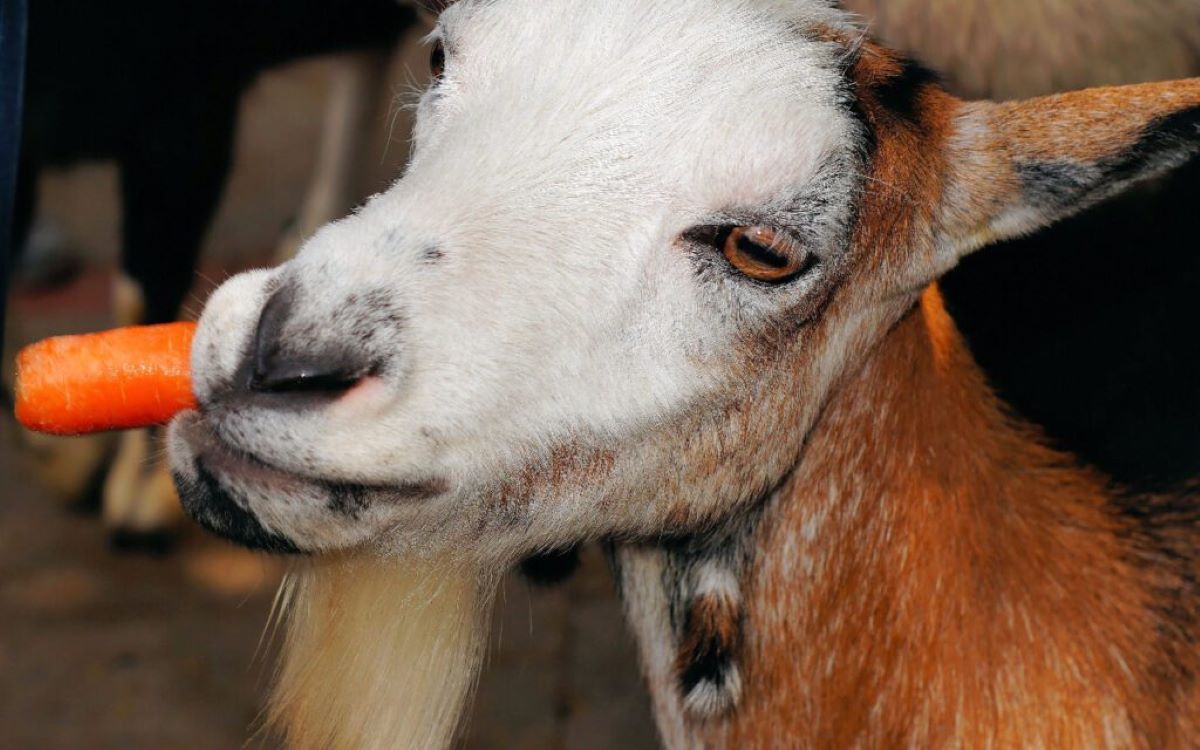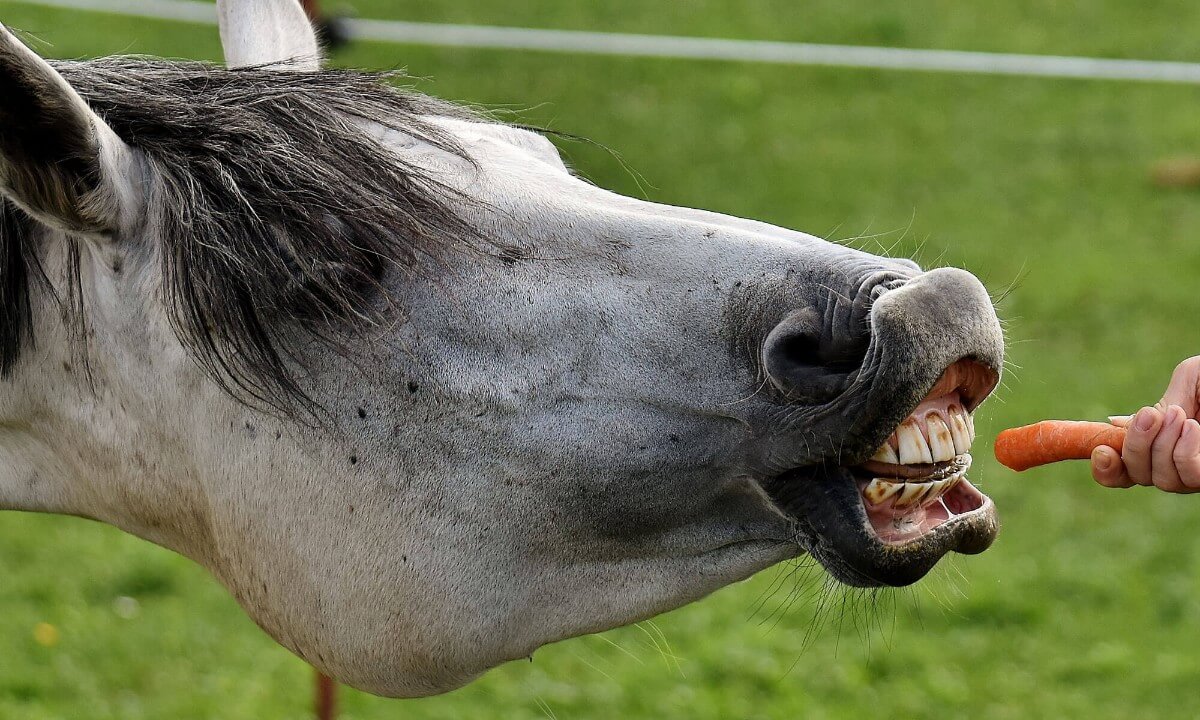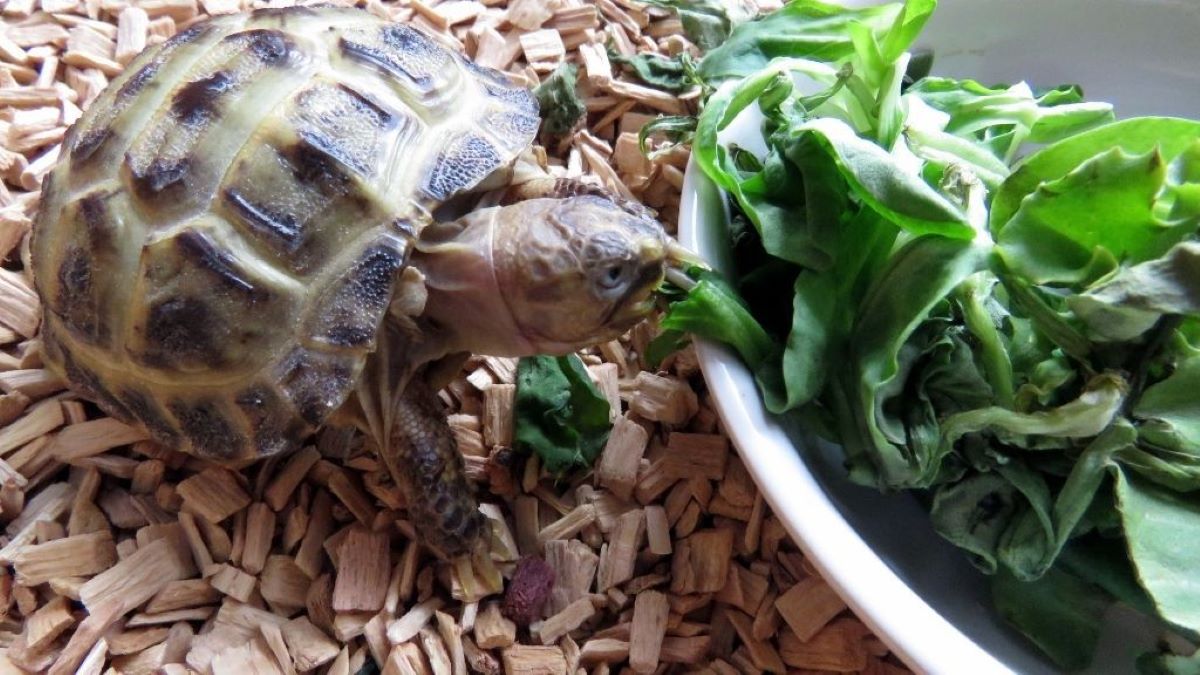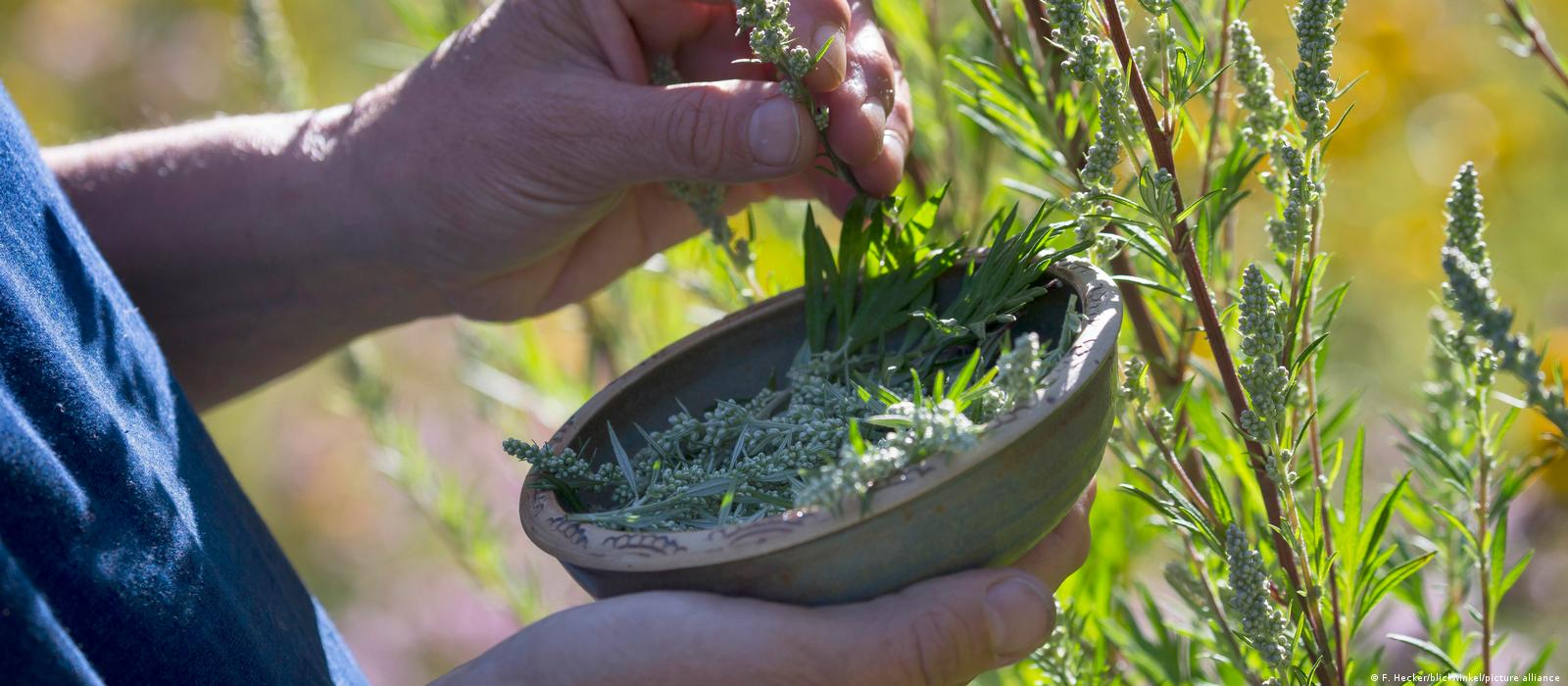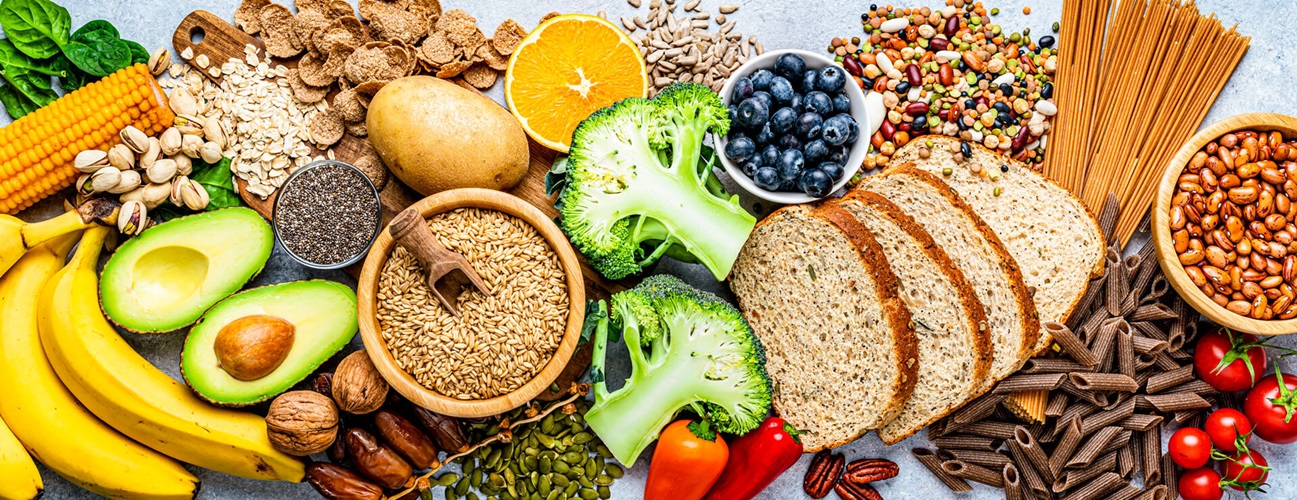Home>Gardening News and Trends>Gardening Trends>What Herbs Can Chickens Eat
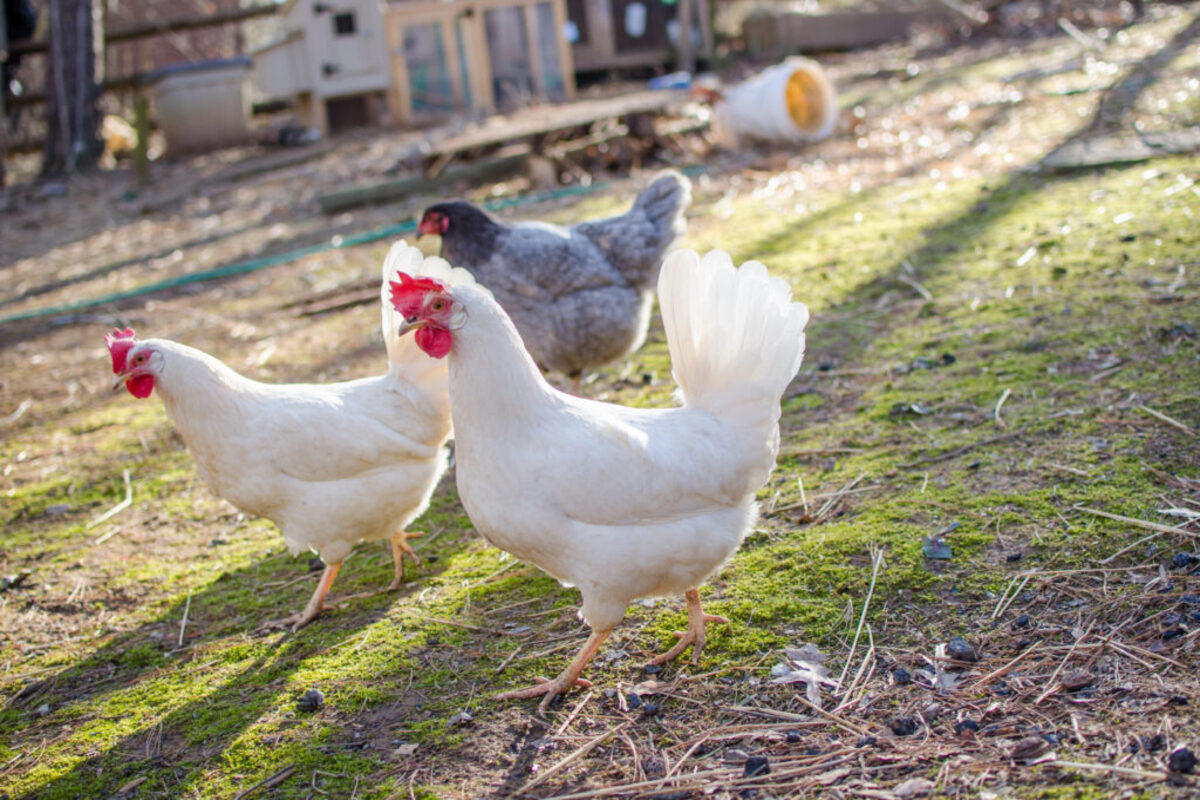

Gardening Trends
What Herbs Can Chickens Eat
Modified: January 22, 2024
Discover the latest gardening trends and learn which herbs are safe for chickens to eat. Enhance your garden and keep your flock healthy and happy.
(Many of the links in this article redirect to a specific reviewed product. Your purchase of these products through affiliate links helps to generate commission for Chicagolandgardening.com, at no extra cost. Learn more)
Table of Contents
- Introduction
- Benefits of Feeding Herbs to Chickens
- Safety Precautions When Feeding Herbs to Chickens
- List of Herbs Safe for Chickens to Eat
- Herbs to Feed Chickens for Improved Egg Quality
- Herbs to Promote Digestive Health in Chickens
- Herbs with Antibacterial Properties for Chicken Health
- Herbs to Boost Chickens’ Immune System
- Herbs to Calm and Reduce Stress in Chickens
- Herbs to Repel Parasites and Insects Naturally
- Conclusion
Introduction
Welcome to our guide on the benefits of feeding herbs to chickens. Chickens are not only adorable and fun to have in your backyard, but they are also great for providing fresh eggs. To ensure that your chickens are healthy and happy, it is important to provide them with a balanced diet. Incorporating herbs into their diet can offer numerous benefits, including improved egg quality, enhanced digestive health, and even a boost to their immune system.
Herbs are not only delicious for humans but are also packed with essential nutrients and medicinal properties. By feeding herbs to your chickens, you can provide them with natural sources of vitamins, minerals, and antioxidants. Additionally, many herbs have antimicrobial and antibacterial properties that can help prevent common ailments in chickens.
However, it is important to note that not all herbs are safe for chickens to consume. Some herbs can cause digestive issues or even be toxic to them. Therefore, it is crucial to be knowledgeable about the herbs that are safe and beneficial for chickens before incorporating them into their diet.
In this article, we will explore a range of herbs that are safe for chickens to eat. We will also discuss the specific benefits that each herb offers and provide tips on how to introduce herbs into your chickens’ diet. Whether you are a beginner chicken owner or a seasoned pro, this guide will help you make informed decisions about feeding herbs to your chickens.
Keep in mind that while herbs can provide numerous benefits to chickens, they should not be the sole focus of their diet. It is important to offer a balanced diet that includes a mixture of herbs, grains, fruits, vegetables, and a good quality chicken feed. Now let’s dive into the wonderful world of herbs and discover how they can enhance the health and well-being of your backyard flock!
Benefits of Feeding Herbs to Chickens
Feeding herbs to chickens can provide a multitude of benefits for their overall health and well-being. Here are some of the key advantages of incorporating herbs into their diet:
1. Improved Egg Quality: Certain herbs can enhance the quality of eggs laid by chickens. For instance, adding herbs like oregano and basil to their diet can increase the omega-3 fatty acid content in the eggs, making them more nutritious. This can be particularly beneficial for individuals who prefer to consume eggs with higher nutrient profiles.
2. Enhanced Digestive Health: Herbs such as thyme, parsley, and dill can aid in digestion and promote a healthy gut in chickens. These herbs are known to have carminative properties, which can help prevent or relieve digestive issues such as bloating and gas.
3. Antibacterial and Antimicrobial Properties: Many herbs possess natural antibacterial and antimicrobial properties. Including herbs like garlic and turmeric in your chickens’ diet can help prevent and fight off bacterial infections, protecting their overall health.
4. Boosted Immune System: Certain herbs, such as echinacea and elderberry, have immune-boosting properties. Adding these herbs to your chickens’ diet can enhance their immune system, making them less susceptible to common illnesses and diseases.
5. Calming and Stress Reduction: Chickens, like other animals, can experience stress and anxiety. Feeding them herbs like chamomile and lavender can have a calming effect, helping to reduce stress levels and improve their well-being.
6. Natural Parasite Control: Some herbs, including tansy and wormwood, have natural properties that can help repel parasites and insects, reducing the risk of infestations in your flock. By incorporating these herbs into their diet, you can provide a natural defense against unwanted pests.
7. Increased Nutritional Variety: Offering a diverse range of herbs to your chickens can provide them with a wide array of nutrients. Herbs are rich in essential vitamins, minerals, and antioxidants, which can contribute to the overall health and vitality of your flock.
Incorporating herbs into your chickens’ diet not only contributes to their well-being but also adds variety and interest to their meals. However, it is important to remember that herbs should be used as a supplement to their regular diet and not as a replacement for essential nutrients provided by a well-balanced feed.
Safety Precautions When Feeding Herbs to Chickens
While herbs can offer numerous benefits to chickens, it is important to exercise caution when incorporating them into their diet. Here are some safety precautions to keep in mind:
1. Know Your Herbs: Familiarize yourself with the different herbs and their properties before feeding them to your chickens. Some herbs may have toxic compounds that can be harmful or even fatal to chickens. Conduct thorough research and consult with a veterinarian or poultry expert to ensure the safety of the herbs you choose.
2. Start Slowly: When introducing herbs to your chickens for the first time, start with small amounts and gradually increase the quantity over time. This allows their digestive system to adjust and prevents any sudden adverse reactions.
3. Organic and Chemical-Free: Use organic, chemical-free herbs whenever possible. Herbs treated with pesticides, herbicides, or other chemicals can pose health risks to your chickens. If you’re unsure about the source of the herbs, consider growing them yourself or purchasing from a trusted organic supplier.
4. Observe for Allergic Reactions: Keep a close eye on your flock after introducing new herbs to their diet. Watch for any signs of allergic reactions, such as difficulty breathing, swelling, or rashes. If you notice any adverse reactions, discontinue the use of the herb immediately and seek veterinary advice.
5. Monitor Intake: While herbs can be beneficial, chickens should not consume excessive amounts. Overconsumption of certain herbs, such as mint or sage, can cause digestive upset. Ensure that the herbs are provided as part of a balanced diet and offer a variety of other feed sources to ensure nutritional variety.
6. Consult with a Poultry Expert: If you have any concerns or questions about feeding herbs to your chickens, consult with a veterinarian or poultry expert. They can provide specific guidance based on your flock’s needs, as well as offer advice on dosage, frequency, and potential herb combinations.
By following these safety precautions, you can minimize any potential risks and ensure the well-being of your chickens when incorporating herbs into their diet. Remember, the health and safety of your flock should always be the top priority!
List of Herbs Safe for Chickens to Eat
When it comes to feeding herbs to chickens, it’s important to choose herbs that are safe and beneficial for their health. Here is a list of herbs that are considered safe for chickens to eat:
1. Basil: Basil is not only delicious but also packed with antioxidants. It can be beneficial for chickens’ overall health and immune system.
2. Oregano: Oregano has antimicrobial properties and can help prevent and treat bacterial infections in chickens. It also helps improve egg quality.
3. Parsley: Parsley is rich in vitamins and minerals, including vitamin C and iron. It aids digestion and supports overall health.
4. Mint: Mint has a calming effect on chickens and can help with digestive issues. However, it should be fed in moderation as excessive amounts may cause digestive upset.
5. Thyme: Thyme is known for its antifungal and antibacterial properties. It can support respiratory health and boost the immune system.
6. Chamomile: Chamomile has a calming effect on chickens and can help reduce stress and anxiety. It also supports digestive health.
7. Dill: Dill stimulates the appetite and aids in digestion. It can also act as a natural insecticide, repelling pests like mites and lice.
8. Garlic: Garlic has natural antibiotic properties and can help prevent bacterial and parasitic infections in chickens. It also enhances immune function.
9. Lavender: Lavender has a calming effect and can help reduce stress in chickens. It also acts as an insect repellent.
10. Marjoram: Marjoram supports the respiratory system and can help relieve respiratory issues in chickens. It also has antibacterial properties.
11. Rosemary: Rosemary is rich in antioxidants and can boost chickens’ immune system. It also acts as a natural parasitic repellent.
12. Nettle: Nettle is a nutritive herb that is rich in vitamins and minerals. It promotes overall health and can help prevent anemia in chickens.
Remember to introduce herbs gradually and monitor your chickens’ response. The quantity and frequency of feeding herbs may vary depending on your flock’s size and individual needs. Always provide a balanced diet alongside the herbs to ensure proper nutrition.
Herbs to Feed Chickens for Improved Egg Quality
If you’re looking to enhance the quality of eggs laid by your chickens, incorporating certain herbs into their diet can be beneficial. These herbs not only provide essential nutrients but also contribute to the overall health and well-being of your flock. Here are some herbs known for improving egg quality:
1. Flaxseed: Flaxseed is a popular choice for boosting omega-3 fatty acids in eggs. It can be ground and added to the chickens’ feed for improved nutritional content. Omega-3 fatty acids are essential for brain function and heart health.
2. Basil: Basil contains valuable antioxidants, specifically flavonoids, which can strengthen chickens’ immune systems. This boost to their overall health can result in higher-quality eggs.
3. Parsley: This herb is rich in several important nutrients, including vitamins A, C, and K, which are essential for healthy egg formation. Additionally, parsley can help maintain hormone balance in chickens, leading to improved egg quality.
4. Marigold: Marigold flowers contain lutein, a natural pigment that can improve the yolk color of eggs, resulting in more vibrant and visually appealing eggs. Marigold petals can be added to the chickens’ diet for this purpose.
5. Dandelion: Dandelion leaves are highly nutritious and can contribute to improved egg quality. They are rich in vitamins A, C, and K, as well as minerals like potassium and iron.
6. Seaweed: Seaweed is a natural source of trace minerals, including iodine, which is essential for proper thyroid function. Incorporating small amounts of seaweed into chickens’ diet can result in eggs with higher iodine content.
7. Oregano: Oregano not only has antimicrobial properties but is also known to be beneficial for egg quality. It can enhance the omega-3 fatty acid content in eggs, making them more nutritious.
Keep in mind that herbs should be used as a supplement to a well-balanced diet and should not replace essential nutrients provided by commercial chicken feed. Monitoring the intake and gradually introducing herbs to your flock’s diet will help ensure optimal benefits without overwhelming their digestive system.
Herbs to Promote Digestive Health in Chickens
Maintaining good digestive health is crucial for the overall well-being of your chickens. Incorporating certain herbs into their diet can help support their digestive system and prevent common digestive issues. Here are some herbs that can promote digestive health in chickens:
1. Thyme: Thyme is known for its antifungal and antibacterial properties, making it an excellent herb for promoting a healthy gut in chickens. It can aid in digestion and prevent gastrointestinal infections.
2. Parsley: Parsley is not only a flavor-enhancing herb but also supports digestive health in chickens. It contains enzymes that aid in the breakdown of proteins, fats, and carbohydrates, improving overall digestion.
3. Peppermint: Peppermint has a soothing effect on the digestive system and can help alleviate digestive issues such as bloating and gas. It also acts as a natural deterrent for pests like rodents and flies.
4. Fennel: Fennel has carminative properties that can help relieve flatulence and gastrointestinal discomfort in chickens. It can also stimulate the production of digestive enzymes, aiding in proper digestion.
5. Ginger: Ginger is known for its anti-inflammatory properties and can help alleviate digestive inflammation and improve gut health in chickens. It aids in digestion and can help prevent gastrointestinal issues.
6. Dill: Dill is a digestive herb that can stimulate the appetite and aid in digestion. It can also act as a natural insecticide, repelling pests that may disrupt chickens’ digestive health.
7. Chamomile: Chamomile has calming properties and can help reduce stress-related digestive issues in chickens. It can soothe gastrointestinal inflammation and promote a healthy digestive system.
When feeding these herbs to your chickens for digestive support, it is important to provide them in moderation. Introduce small amounts gradually and observe how your chickens respond to the herbs. If any adverse reactions occur, discontinue the use of the herb and consult with a veterinarian or poultry expert.
Remember that while herbs can support digestive health, it is essential to provide a balanced diet that includes high-quality chicken feed and a variety of other nutritious foods. Monitoring their intake and ensuring access to fresh water will also contribute to their overall digestive well-being.
Herbs with Antibacterial Properties for Chicken Health
Maintaining good health and preventing bacterial infections is essential for the well-being of your chickens. Incorporating herbs with antibacterial properties into their diet can provide a natural defense against bacteria and support their overall health. Here are some herbs known for their antibacterial properties that can benefit chicken health:
1. Garlic: Garlic is a powerful herb with natural antibiotic properties. It contains compounds such as allicin that can help boost chickens’ immune system and protect against bacterial infections. Garlic can also act as a natural dewormer.
2. Oregano: Oregano is not only a flavorful herb but also has significant antibacterial properties. It contains compounds like carvacrol and thymol that can help prevent and treat bacterial infections in chickens. Oregano can be beneficial for respiratory health and overall immunity.
3. Thyme: Thyme is known for its antimicrobial properties and can help combat bacterial infections in chickens. It contains compounds like thymol that have potent antibacterial effects. Thyme can also support respiratory health and enhance chickens’ immune system.
4. Echinacea: Echinacea is a herb renowned for its immune-boosting properties. It can stimulate the production of white blood cells, helping chickens fight off bacterial infections. Echinacea can be beneficial for overall chicken health and can help speed up recovery from illnesses.
5. Ginger: Ginger has both antibacterial and anti-inflammatory properties. It can help prevent bacterial infections and support digestive health in chickens. Ginger can also aid in respiratory health and ease inflammation caused by bacterial infections.
6. Turmeric: Turmeric contains a compound called curcumin, which has potent antibacterial properties. It can help prevent and treat bacterial infections in chickens. Turmeric also has anti-inflammatory effects, making it beneficial for overall health.
7. Nettle: Nettle is a nutritive herb that can support the immune system and help prevent bacterial infections. It is rich in vitamins and minerals that contribute to overall chicken health. Nettle can also serve as a natural dewormer.
When using herbs with antibacterial properties, it’s important to introduce them gradually into your chickens’ diet. Monitor their response and adjust the quantities accordingly. While herbs can provide a natural defense against bacteria, they should not replace appropriate veterinary care when needed.
Using herbs as a supplement to a balanced diet, good hygiene practices, and proper coop management will help support chicken health and prevent bacterial infections. Regular monitoring and seeking veterinary advice when necessary are crucial for maintaining the well-being of your flock.
Herbs to Boost Chickens’ Immune System
A strong immune system is vital for keeping chickens healthy and protected against various illnesses and diseases. Incorporating certain herbs into their diet can help boost their immune system and improve their overall health. Here are some herbs known for their immune-boosting properties:
1. Echinacea: Echinacea is well-known for its immune-stimulating properties. It increases the production of white blood cells, which play a key role in fighting off infections and diseases. Echinacea can support overall immune function in chickens.
2. Ginger: Ginger has immune-boosting properties due to its high levels of antioxidants. It can help strengthen the immune system and protect against illnesses. Ginger also possesses anti-inflammatory properties that can aid in maintaining overall chicken health.
3. Garlic: Garlic is not only known for its antibacterial properties but also for its immune-enhancing effects. It helps stimulate the immune system, assisting in the prevention and treatment of infections in chickens. Regular consumption of garlic can contribute to a robust immune response.
4. Oregano: Oregano contains compounds like carvacrol and thymol, which have immune-boosting properties. By incorporating oregano into the chickens’ diet, you can support their immune system and help fight off common infections.
5. Rosemary: Rosemary is rich in antioxidants that can help strengthen the immune system in chickens. It also has antimicrobial properties, offering additional protection against pathogens. Adding rosemary to their diet can support optimal immune function.
6. Astragalus: Astragalus is an herb well-known for its immune-enhancing properties. It helps stimulate the production of white blood cells and boosts the overall immune response. Astragalus can be especially beneficial during periods of stress or when chickens are prone to infections.
7. Nettle: Nettle is a nutritive herb that contains high levels of vitamins and minerals essential for the immune system. It helps support immune function and can help chickens fight off infections. Nettle is also known for its anti-inflammatory properties.
Remember that while these herbs can help boost chickens’ immune system, they should be used as a supplement to a well-balanced diet and good husbandry practices. Proper nutrition, clean living conditions, and regular healthcare are all crucial for maintaining strong immunity in chickens.
Introduce these herbs gradually into their diet, and monitor their response. If any adverse reactions occur, discontinue their use and seek advice from a veterinarian or poultry expert. By incorporating immune-boosting herbs into their routine, you can help ensure that your chickens stay healthy and resilient.
Herbs to Calm and Reduce Stress in Chickens
Just like humans, chickens can experience stress and anxiety. High stress levels can adversely affect their overall well-being and even impact egg production. Incorporating certain herbs into their diet can help promote calmness and reduce stress in chickens. Here are some herbs known for their calming properties:
1. Chamomile: Chamomile is widely regarded for its calming effects. It can help reduce stress and anxiety in chickens, promoting a sense of relaxation. Chamomile can be added to their diet or used in the form of herbal tea for chickens.
2. Lavender: Lavender has a soothing aroma that can help calm chickens. The scent of lavender can reduce stress and create a more peaceful environment in the coop. Dried lavender can be scattered around the coop or added to their bedding.
3. Valerian: Valerian is known for its sedative properties and can help calm chickens. It can be used sparingly in their diet or used as a dried herb in their coop environment to create a soothing atmosphere.
4. Hops: Hops, typically known for their use in brewing, have calming effects on chickens. The sedative properties of hops can help reduce stress and create a more relaxed environment for your flock.
5. Peppermint: Peppermint has a cooling and calming effect on chickens. It can help relieve stress and promote relaxation. Additionally, peppermint can act as a natural insect repellent, keeping the coop a more comfortable and stress-free environment.
6. Passionflower: Passionflower has long been used for its calming properties. It can help reduce stress and anxiety in chickens, promoting a sense of tranquility. Passionflower can be added to their diet or used as a dried herb in the coop.
It’s important to note that while these herbs can help calm and reduce stress in chickens, individual responses may vary. Some chickens may show a more noticeable response to these herbs than others. It’s also important to provide a calm and secure living environment with adequate space, proper nutrition, and protection against predators to minimize stress levels.
When introducing these herbs, start with small amounts and slowly increase the quantity. Monitor your chickens’ behavior and response to ensure there are no adverse reactions. If you notice any negative effects, discontinue the use of those herbs and consult with a veterinarian or poultry expert.
By incorporating these calming herbs into your chickens’ routine, you can create a more tranquil environment and promote their overall well-being and happiness.
Herbs to Repel Parasites and Insects Naturally
Keeping parasites and insects under control is essential for maintaining the health and well-being of your chickens. While there are several commercial options available, incorporating certain herbs into their diet can provide a natural defense against these pests. Here are some herbs known for their ability to repel parasites and insects naturally:
1. Marigold: Marigold flowers contain compounds that act as natural insecticides by repelling pests such as flies and mosquitoes. Adding marigold petals to their diet or placing them in the coop can help deter these pests.
2. Tansy: Tansy has been used for centuries as an insect repellent. Its strong scent can help keep pests like flies, fleas, and mites away from your chickens. However, ensure that you use tansy in moderation, as large amounts of it can be toxic to chickens.
3. Mint: Mint has a strong aroma that pests find unpleasant. It can help repel flies, mosquitoes, and rodents. Fresh or dried mint can be added to the chickens’ nesting areas or incorporated into their bedding to deter pests.
4. Wormwood: Wormwood is known for its potent insect-repelling properties. It can help keep pests like fleas, mites, and ticks away from your chickens. However, use wormwood sparingly, as it can be toxic in large amounts.
5. Lavender: Lavender not only has a calming effect but also acts as a natural insect repellent. Its strong scent helps keep pests like flies, fleas, and mosquitoes away from your chickens. Dried lavender can be placed in the coop or added to their bedding.
6. Rosemary: Rosemary has a strong scent that pests find off-putting. It can help repel flies, mosquitoes, and other insects. Additionally, rosemary can be beneficial for respiratory health and overall well-being in chickens.
When using these herbs, keep in mind that their effectiveness may vary depending on factors such as the severity of pest infestation and the specific environment. It’s important to regularly monitor your chickens for parasites and engage in proper coop maintenance practices, such as regular cleaning and removal of droppings, to minimize pest problems.
Introduce these herbs into your chickens’ environment and observe their response. If any adverse reactions occur, discontinue their use and consult with a veterinarian or poultry expert. Consider planting these herbs around your chicken coop and run area for a natural pest-repellent effect.
By incorporating these herbs known for their pest-repelling properties, you can provide a safer and more comfortable environment for your chickens, reducing the risk of infestations and protecting their overall health.
Conclusion
Incorporating herbs into the diet of your chickens can offer numerous benefits for their overall health and well-being. From improved egg quality to enhanced immune function, there are specific herbs that can address different aspects of chicken health. However, it is crucial to exercise caution and ensure the safety and appropriate usage of herbs for your flock.
Feeding herbs to chickens should be done in moderation and as a supplement to a balanced diet that includes high-quality feed and a variety of nutritious foods. It’s important to introduce herbs gradually and monitor their response to avoid any adverse reactions. Consulting with a veterinarian or poultry expert can provide additional guidance and ensure the well-being of your flock.
Remember that not all herbs are safe or beneficial for chickens. It is essential to research and understand the properties of herbs before including them in their diet. Some herbs may have toxic compounds or interact with certain medications, so it’s important to be knowledgeable and cautious when selecting herbs for your chickens.
By choosing herbs with specific benefits such as improved egg quality, digestive health support, antibacterial properties, immune system enhancement, stress reduction, and natural parasite control, you can provide your chickens with a holistic approach to their overall health.
Creating a safe, clean, and stress-free environment for your chickens is also crucial to their well-being. Proper coop management, good hygiene practices, ample space, and protection against predators are essential for maintaining their health and minimizing stress levels.
Incorporating herbs into your chickens’ diet can be a rewarding and natural way to support their health and enhance their quality of life. By understanding the benefits and proper usage of herbs, you can make informed decisions and provide the best care for your backyard flock.

